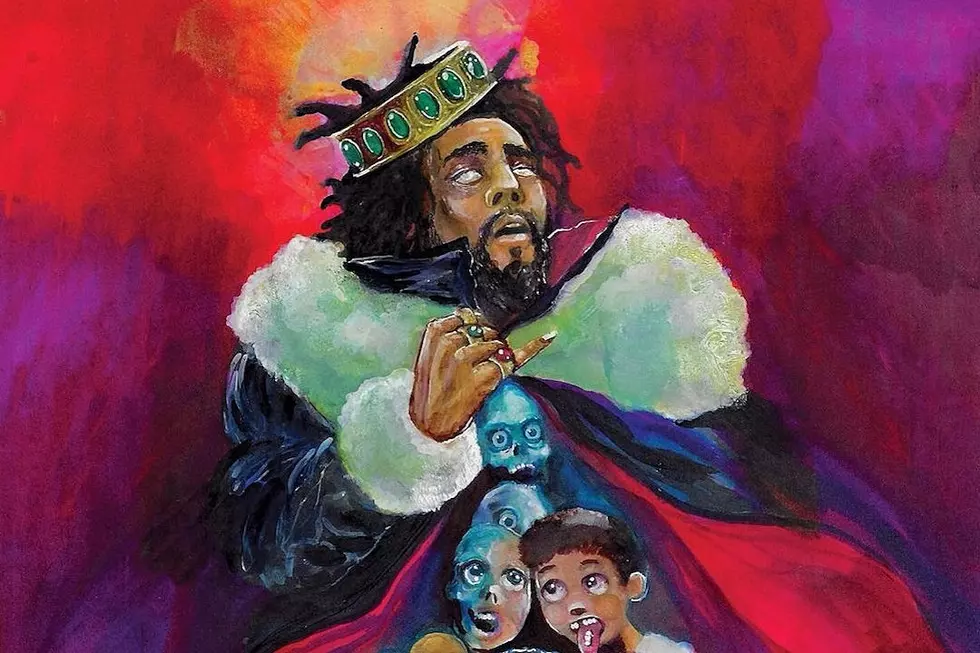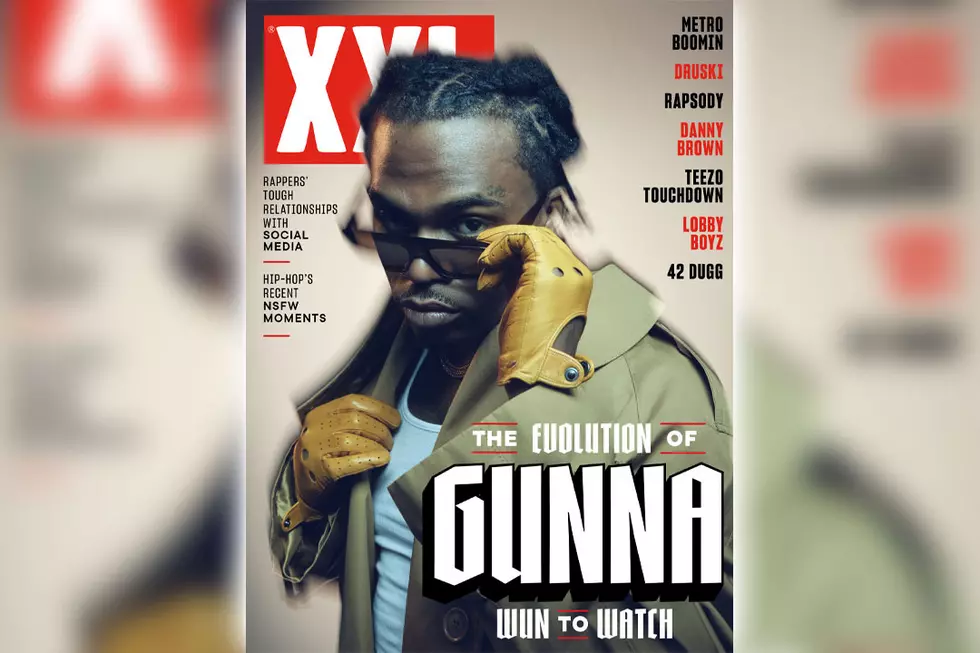
J. Cole’s ‘KOD’ Album Tackles Addiction, But There Are Side Effects
J. Cole needs little introduction. His music and success speaks for itself. A decade of mixtapes, tours and airtight album rollouts have placed the Jay-Z neophyte at the head of the table. From his open lyricism and storybook come up to the fresh talent on his Dreamville roster, there’s no use assessing or questioning J. Cole’s current influence and legacy in the making.
With that in mind, Cole is using his security and position to make music with a message that matters to him. His fifth studio album KOD (a three-way acronym meaning “Kids On Drugs,” “King Overdose” and “Kill Our Demons”) takes on the glorification of drugs in music and society. At its best, the 33-year-old rapper's latest is an empathetic portrayal of the causes and effects of substance abuse. Yet at its worst, it’s an exercise in high-grounding addicts.
There’s a purposeful hollowness that haunts KOD: kiLL edward, Cole’s vocally distorted alter ego that demonstrates the rapper’s own internal battle with indulgence. The mealy quality of the edward vocals have a tugging weight that commands the listeners’ attention and depicts a psyche at war. Further setting the mystical ambiance is a flurry of harried voices that usher in the album with the recurring refrain “Choose wisely,” a warning against seeking temptation and quick fixes as a band-aid solution for pain.
Cole addresses all types of addictions on KOD. The sinewy, Instagram-focused “Photograph” is a longing commentary on love in the social media era that brings double-tap desire to life. The lead single and obvious radio standout “ATM” is a spastic and blistering look at obsession with stacking paper, laid over booming bass and cash machine sounds. E-40 would feel at home on the infectious, elastic bassline of “Motiv8,” another repetitive money-hungry hit. All three records situate Cole in the present, as he dons the triplet and “ayy” flows that Migos and Playboi Carti have made their calling cards, respectively. On one hand, the modernized cadence makes good on the excitement of the knocking 4 Your Eyez Only standout “Neighbors,” but it’s a curious style choice considering that Cole openly borrows from the same ilk of artists that he maligns on the controversial closing track “1985 - Intro to ‘The Fall Off,’” a subliminal public spanking of SoundCloud rappers who don’t respect their elders.
While “1985” grabbed all of the early attention and headlines, the stakes are highest when KOD zeroes in on recreational drug use. “Once an Addict (Interlude)” is the apex—Cole gets personal about his mother’s struggles with heartache and alcoholism, delivering a sprawling verse about her battles and his desire to save her. "Subconsciously I was nervous that if I came home early then what would surface/Was her inner demons/And then I'd have to end up seeing my hero on Ground Zero/Tears flow while Al Green blow/'Love and Happiness'/I wish that I could say the right words to cheer her up/I wish her son's love was enough," he raps. The gloomy track succeeds not only due to its mature introspection and heart-wrenching honesty, but also because Cole avoids victimizing himself or taking the moral high ground.
He misses that same morality mark, though, on “FRIENDS,” a technically sound, well-intentioned cautionary tale about drug abuse that lacks some necessary tact. On the track, Cole juggles the dangers of getting high as a substitute for mental healthcare with ideas that lack nuance, culminating in a simplistic solution of meditation over medication. He raps: “There's all sorts of trauma from drama that children see/Type of shit that normally would call for therapy/But you know just how it go in our community/Keep that shit inside it don't matter how hard it be/Fast forward, them kids is grown and they blowing trees/And popping pills due to chronic anxiety.” The call for meditation, then, slashes the weight of Cole’s message and puts us in a false binary. He presents a straw man argument: People are either popping pills to fill a void or meditating their way to emotional health and security. It’s a shame, because J. Cole is on the crux of a breakthrough.
On “BRACKETS,” a mellow track dedicated to interrogating the tax codes, Cole asks critical questions about the whereabouts of his hard-earned tax dollars. With its steely technicality and soulful inflections, the track is a thoughtful take that brings to light the many ways that the system fails predominantly Black communities. But he offers an impractical solution in the form of mobile apps to allocate governmental expenditures—Venmo for taxes. Just as addiction is an overarching motif, there’s a theme here of J. Cole initiating necessary conversations without completely seeing them through.
Still, there’s no denying J. Cole’s growth both in art and ambition. KOD’s trap-meets-jazz instrumentals represent a continuing evolution of his sound, while his rhymes here are even sharper and more masterful. And even when he’s aping flows of younger artists, there’s no denying his raw skill. While there are moments where Cole comes off more as a condescending high school principal than earnest older brother, KOD is an overall strong effort that connects of emotional trauma, mental health stigma in the Black community and the real problem of drug glorification. Go ahead, indulge.
Here Are the Best Projects Released From 104 Past and Present XXL Freshmen
More From XXL









